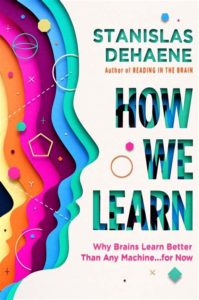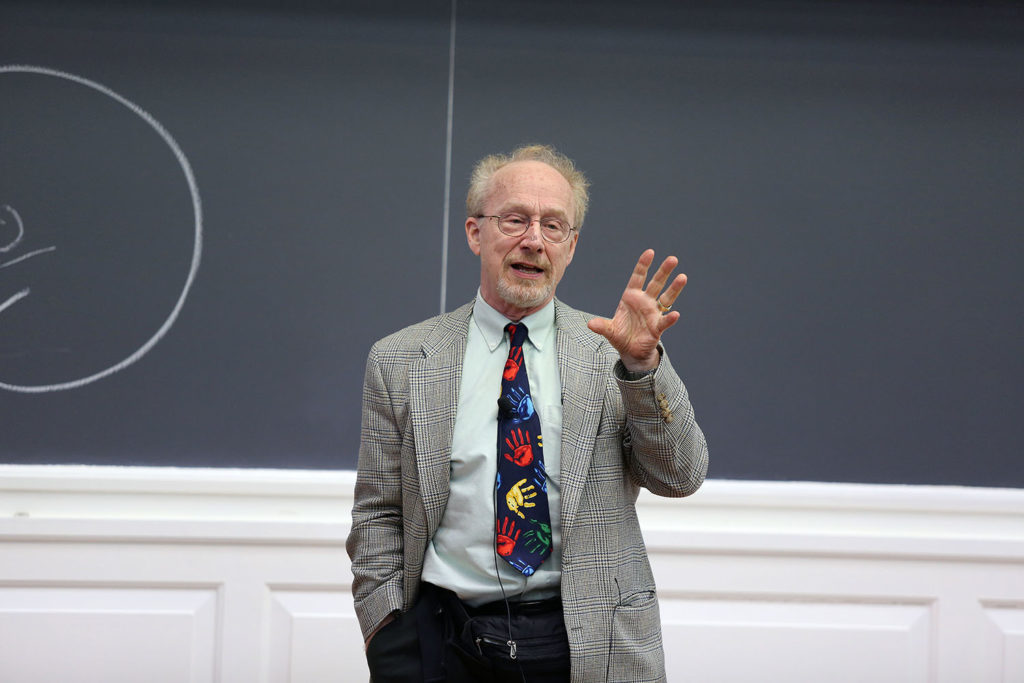As an English teacher, I really do enjoy (almost) everything I teach. I love discussing Macbeth, and coaching strong writing, and parsing English grammar. (No, really!)
My students? Not so much with the enjoying.
They’re a good-natured lot, and so — for the most part — amiably play along with my enthusiasm. But, at times I feel I should enliven a topic with a story or a picture or a video.
If our Macbeth conversation slips into neutral, I might talk about an actor’s a funny mistake during a recent production of The Crucible.
If they just can’t focus on the difference between a predicate nominative and a predicate adjective, I might start using my Godfather voice and ask them to show respect for the family. (They LOVE it when I do that…)
But here’s the question: do those funny/gross/intriguing side treks ultimately benefit or harm learning?
Seductive Details
In research world, we call these additions “seductive details.”
For instance, my lesson plan might focus on the geological forces that cause volcanoes to erupt. Past experience tells me that the lesson itself can be a bit of a slog, so I start it off with the story of Krakatoa’s eruption — which killed more than 35,000 people.
Maybe I break out some pictures of Vesuvius — an eruption that buried and preserved an entire Roman city.
In these cases, my stories enliven the general topic: “volcanoes are super deadly!” But they don’t add to the specific learning goal: geological forces that cause eruptions.
Such stories are “seductive,” but not — shall we say — “substantive” in their contribution to the lesson.
This topic gets lots of scholarly interest, and has led to many publications. Quite recently, Dr. NarayanKripa Sundararajan (Kripa Sundar) and Dr. Olusola Adesope published a meta-analysis that crunched the data of 68 different experiments.
What did they learn?
Many Questions, Helpful Answers
Given so many studies to examine, these researchers had lots of ways to parse the data:
Does it matter if the “seductive detail” is a photo or a video or an audio recording?
Does it matter how researchers measure ultimate learning?
Perhaps it matters if the “seductive details” is at the beginning, middle, or end of the lesson?
Does it matter if the students had some prior knowledge of the materiel?
With so many variables (and lots more), Sundararajan and Adesope have LOTS of conclusions to report. Rather than list them all, I’ll highlight a few that struck me as most important.
First: seductive details matter. They do, in fact, interfere with learning. Depending on which variable they studied, the researchers found different effect sizes. But, quite consistently, additional “seductive” information ended up lowering final measurements of learning.
For video and audio. If the details were at the beginning, in the middle, or at the end. For novices and experienced students. Etc…
Second: the length of the lesson matters. Specifically, seductive details have a considerable effect in short lessons (less than 5 minutes), but no statistically significant effect on longer ones (more than 10 minutes).
Practically speaking, I think this means that typical classroom lessons (which very rarely last less than 5 minutes) won’t suffer terribly from the inclusion of seductive details.
But — and this is an important exception — our current climate of online teaching might well prompt us to create brief lessons. In such lessons, seductive details will be much more distracting.
Third: the meta-analysis suggests that suggestive details create bigger problems for novices than for experts — or even for students who have some baseline knowledge of the topic. So, as Dr. Sundararajan wrote to me, “perhaps it’s not a good idea to use [seductive details] when introducing new content but perhaps not too bad in a review.”
What Should Teachers Do Now?
To start off, in the researchers’ words: “educators should minimize the use of seductive details in their instruction.”
That advice holds true especially if those details might…
… distract students from the essential ideas under discussion,
… remind students of prior misconceptions that you want to override,
… take up lots of space (say — a diagram on a page),
… take place in a relatively short (online?) lesson.
Another strategy: rework those seductive details so that the DO connect DIRECTLY to the learning goal. So, rather than simply focus the Vesuvius story on the destruction it wrought, instead talk about Roman conceptions of the causes of volcanoes. Those mythical explanations aren’t literally true, but they point the way toward — and might even align with — the scientific content you want to cover.
Yet another strategy: don’t sweat too much. Seductive details don’t permanently destroy all possibility of understanding. If used the wrong way, yes, they can get in the way. But — as all teachers know — sometimes students need a lively distraction to perk them up. As long as we use those details sparingly and thoughtfully, we don’t have to panic about occasional side-tracks.
By the way: I’m not the only one who thinks this. When I emailed Dr. Sundararajan with questions about the meta-analysis, part of her answer was:
“I think it is also important for teachers to remember that the effect is fairly small and not to feel more guilt than they need to – avoid seductive details when possible.
If your kids need a laugh, bring [seductive details] in and be aware that you might want to revisit that content with other learning strategies to help reinforce the learning (e.g. retrieval practice, or note-taking).
Along the same lines, keep in mind that kids are kids and sometimes you just have to let them process the distraction and restart.”
In other words: seductive details matter, but other things matter too. As long as we keep this research in mind as we make our teaching decisions, we’re welcome to talk about Super Deadly Volcanoes from time to time.
By the way: Dr. Sundararajan has expressed an interest in working with teachers on questions and materials. You can reach her at her website, and find her on twitter: @kripasundar.









![An Exciting Event In Mindfulness Research [Repost]](https://www.learningandthebrain.com/blog/wp-content/uploads/2019/09/AdobeStock_89371077_Credit-1024x683.jpg)


